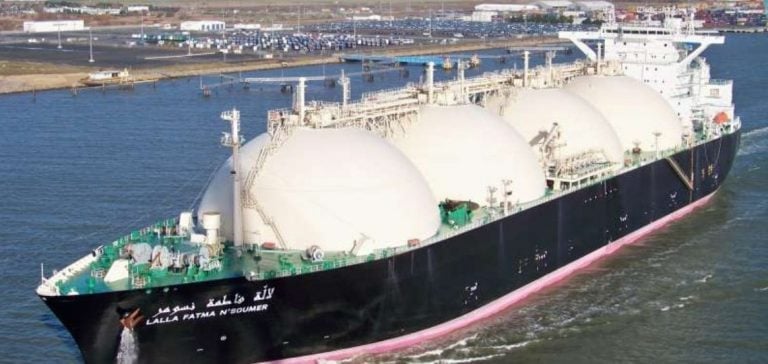Since the start of maintenance work on the Medgaz pipeline linking Algeria and Spain, the flow of gas through this subsea infrastructure has fallen sharply.
Volumes fell from 28 million cubic meters per day in the first two weeks of September to just 13 million cubic meters per day from September 15.
This reduction is due to scheduled inspection work, scheduled to last until September 27.
Despite these disruptions, Algeria has managed to maintain an active presence on the European gas market.
Faced with this reduction, Algeria redirected its sales by increasing LNG exports, thus compensating for the lack of flows to Spain.
In September, Algerian LNG exports already reached 700,000 metric tons, up from 450,000 tons in August.
This development demonstrates Algeria’s flexibility in managing export flows, enabling it to maintain its energy deliveries to Europe, a key market.
Mediterranean market: an opportunity for Algerian LNG
Demand for LNG in the Mediterranean region remains strong, and Algeria is taking advantage of this momentum to offer more Free-On-Board (FOB) cargoes.
Sales to the Eastern and Western Mediterranean have already been reported for September and October, at competitive prices.
FOB cargoes allow buyers to take charge of transport, offering greater flexibility in inventory and contract management.
Algeria’s strategic location, close to European markets, gives its LNG exports an advantage in terms of logistics costs.
A cargo from the port of Arzew takes two days to reach Barcelona, compared with 14 days for a cargo from the Freeport terminal in the United States.
This proximity enables Algeria to respond rapidly to demand from European markets, reducing transport times and costs, particularly in a context of falling sea freight rates for LNG.
A pricing strategy adapted to market conditions
At the same time, LNG prices at Mediterranean hubs remain above contractual levels, which favors Algerian sales.
Algeria applies a pricing policy based on a “cocktail” of mechanisms, including components indexed to the price of oil.
Long-term contracts often include a percentage of the crude price, known as a “slope”.
Currently, traders estimate that this slope fluctuates between 12% and 13.5%, reflecting market conditions.
Algerian LNG cargoes thus benefit from competitive prices on the international market.
For example, contracts indexed to 12% Brent reach around $9.19/MMBtu, while a 13.5% slope sets the price at $10.33/MMBtu.
These advantageous conditions support exports to the Western and Eastern Mediterranean hubs, where current prices offer a premium of 70 to 99 cents/MMBtu over oil contracts.
Flexibility and adaptation in Algerian exports
Algeria has been quick to adapt its export strategies in the face of Medgaz pipeline maintenance, increasing its LNG sales to maintain its influence on the European market.
Since the work began, several additional cargoes have been shipped to strategic destinations in the Mediterranean, notably Spain and Italy.
This flexibility demonstrates the country’s ability to respond to fluctuating energy market needs, while maintaining strong commercial ties with its main European customers.
What’s more, falling freight rates on short sea routes make Algerian offers even more attractive.
In September, the freight cost for a shipment from Algeria to Southern Europe was 21 cents/MMBtu, well below the levels observed the previous year.
This reduction in logistics costs comes on top of the structural advantages linked to the country’s geographical proximity to its main export markets, enabling Algeria to maximize its revenues while maintaining increased competitiveness in the LNG market.
Outlook for the Algerian LNG market
The outlook for Algeria’s LNG business remains positive, with exports set to continue growing over the coming months.
Maintaining attractive LNG prices, combined with the flexibility of Algerian offers, ensures the country a prime position among natural gas suppliers to Europe.
This privileged position is further strengthened by Algeria’s ability to adjust its sales according to market needs and logistical constraints, particularly at times when key infrastructures such as the Medgaz pipeline are undergoing maintenance work.






















